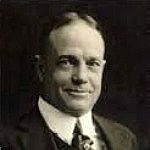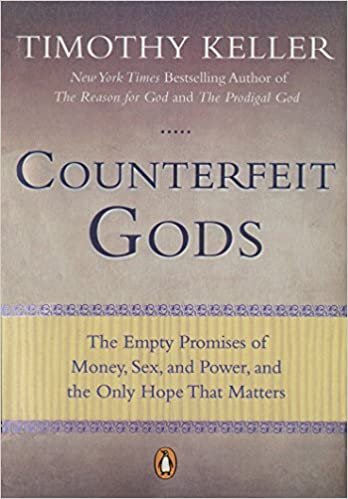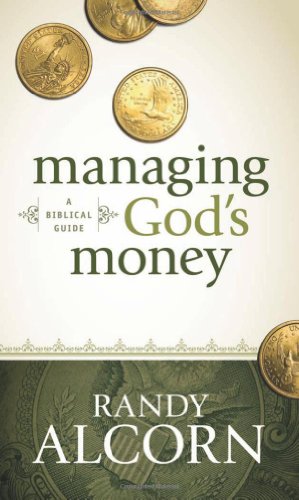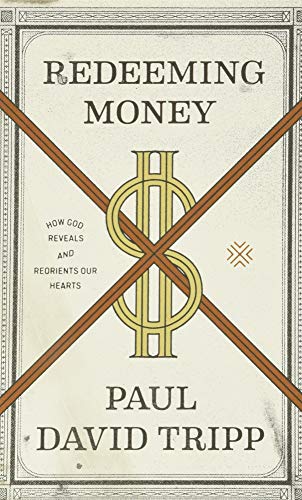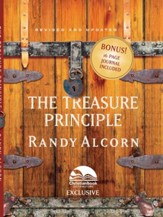Quotes about Money-Deception
Riches and contentedness are like two buckets; while one comes up full the other goes down empty.
I am guilty of loving money when:
1. Thoughts of money consume my day.
2. Others’ success makes me jealous.
1. I define success in terms of what I have rather than what I am in Christ.
2. My family is neglected in my pursuit of money.
3. I close my eyes to the genuine needs of others.
4. I am living in the paralyzing fear of losing it.
5. I am prepared to borrow myself into bondage.
6. God gets my leftovers, rather than my first fruits.
Made For His Pleasure, Moody Press, 1996, p. 146. Get this book!
Solomon got more hurt by his wealth, than he got good by his wisdom.
A Puritan Golden Treasury, compiled by I.D.E. Thomas, by permission of Banner of Truth, Carlisle, PA. 2000, p. 249.
We do trust in our riches. Our words prove it. America’s national retirement plan is called “Social Security.” We call our investments “securities” and “trusts,” as if we can trust them for a secure future. We also make money a god in additional ways. We give it the title of deity: “the Almighty Dollar.” We make money a judge. When someone asks, “What is he worth?” he or she means, “How much money, how many assets, does he have?” We speak as if a man’s financial assets determine his worth.
Riches are long in getting with much pains, hard in keeping with much care, quick in losing with more sorrow.
A Puritan Golden Treasury, compiled by I.D.E. Thomas, by permission of Banner of Truth, Carlisle, PA. 2000, p. 248.
Usually, those who possess riches are possessed by them.
Money can quickly become an end in itself rather than a means to godly ends.
The Measure of a Man by Gene Getz, Copyright 1995, p. 198, Gospel Light/Regal Books, Ventura, CA 93003. Used by Permission. Get this book!
There is a burden of care in getting riches; fear of keeping them; temptation in using them; guilt of abusing them; sorrow in losing them; and a burden of account at last to be given concerning them.
It is commonly said that covetousness is one of the reigning sins of old age. How strange that it should be so! Especially considering what they have seen, and known, and it may be, felt of the emptiness and uncertainty of riches. They have witnessed how often they make themselves wings. What! And not yet convinced! What! Almost at the end of thy journey, and yet loading thyself with thick clay! Think of the time of day. It is almost night; even sun-set. And art thou unmindful of the grave? The body is bending downwards, let the heart be upwards.
A Puritan Golden Treasury, compiled by I.D.E. Thomas, by permission of Banner of Truth, Carlisle, PA. 2000, p. 69.
Material possessions tend to focus one’s thoughts and interests on the world only. Wealth gradually enslaves those who are attached to it and perverts their values. The more we have, the easier it is to be possessed by our possessions, comforts, and recreations.
Taken from James by Kent Hughes, copyright 1991, Crossway Books, a division of Good News Publishers, Wheaton Illinois 60187, p. 213, www.crosswaybooks.org.
Christians can be and ought to be content with the simple necessities of life… First, when you have God near you and for you, you don’t need extra money or extra things to give you peace and security… God is always better than gold… Second, we can be content with the simplicity because the deepest, most satisfying delights God gives us through creation are free gifts from nature and from loving relationships with people. After your basic needs are met, accumulated money begins to diminish your capacity for these pleasures rather than increase them. Buying things contributes absolutely nothing to the heart’s capacity for joy… Third, we should be content with the simple necessities of life because we could invest the extra we make for what really counts (God’s kingdom).
Desiring God, 1996, p. 162-163, Used by Permission, www.desiringGod.org. Get this book!
Are you awake and free from the false messages of American merchandising? Or has the omnipresent economic lie deceived you so that the only sin you can imagine in relation to money is stealing?
Desiring God, 1996, p. 164, Used by Permission, www.desiringGod.org. Get this book!
Money exerts a certain control over us because it seems to hold out so much [false] promise of happiness. It whispers with great force, “Think and act so as to get into a position to enjoy my benefits.” This may include stealing, borrowing, or working. Money promises happiness, and we serve it [Mt. 6:24] by believing the promise and walking by that faith.
He who is not liberal with what he has does but deceive himself when he thinks he would be liberal if he had more.
Two-thirds of all the strifes, quarrels and lawsuits in the world arise from one single cause – money!
Nothing I am sure has such a tendency to quench the fire of religion as the possession of money.
Riches, which all desire to obtain – riches, for which men labor and toil, and become gray before their time – riches are a most perilous possession. They often inflict great injury on the soul. They lead men into many temptations. They engross men’s thoughts and affections. They bind heavy burdens on the heart, and make the way to heaven even more difficult than it naturally is.
Let us all be on our guard against the love of money. The world is full of it in our days. The plague is abroad. Thousands who would abhor the idea of worshiping Juggernaut, are not ashamed to make an idol of gold. We are all liable to the infection, from the least to the greatest. We may love money without having it, just as we may have money without loving it. It is an evil that works very deceitfully. It carries us captives before we are aware of our chains. Once let it get the mastery, and it will harden, paralyze, scorch, freeze, blight, and wither our souls. It overthrew an apostle of Christ. Let us take heed that it does not overthrow us. One leak may sink a ship. One unmortified sin may ruin a soul.
Ultimately, the Bible makes the argument that the sacrifice does not come when we give our money away, but rather the sacrifice comes when we hold on to it believing it will bring us greater happiness with worldly treasures.
If I look to money as my source of satisfaction, I am no longer looking to God. Money has replaced the living God as the primary affection of my heart. And the moment I depend more on my money is the moment my money has become my god. The First Commandment teaches us that the glorious God will not permit other gods before Him (Ex. 20:3). Money is clearly one of America’s greatest idols.
Money is a self-defeating pursuit. In my efforts to find contentment in money, I actually become more discontent if I love money. The more I believe money will satisfy my needs, the more I will depend on money, only to realize that I never have enough. As long as there is always a new item to purchase, I will never be satisfied or content with what I possess.
When we love money, we bring upon ourselves unnecessary sorrows that are inherited consequences of this sin. Grief, guilt, dissatisfaction, remorse, lack of fulfillment, worry, disregard and despair are some of the many wounds caused by the sword of money love.
“I will never leave you nor forsake you.” If God really means that, then I don’t need to crave after money as the source of my security and identity and pleasure. I can find all that and more in the enjoyment of intimacy with the God who promises never to leave! The bondage to money and what it can do for us is only broken by believing that God can do far more. Money makes a promise. So does God. The question is: Whom will you believe?
One Thing, Christian Focus, © Enjoying God Ministries, 2004, p.155-156. www.enjoyinggodministries.com. Used by Permission.
The fellow that has no money is poor. The fellow that has nothing but money is poorer still.
They are fools that fear to lose their wealth by giving, but fear not to lose themselves by keeping it.
A Puritan Golden Treasury, compiled by I.D.E. Thomas, by permission of Banner of Truth, Carlisle, PA. 2000, p. 67.
Money will buy a bed but not sleep; books but not brains; food but not appetite; finery but not beauty; a house but not a home; medicine but not health; luxuries but not culture; amusements but not happiness; religion but not salvation – a passport to everywhere but not heaven.
Money never stays with me. It would burn me if it did. I throw it out of my hands as soon as possible, lest it should find its way into my heart.















